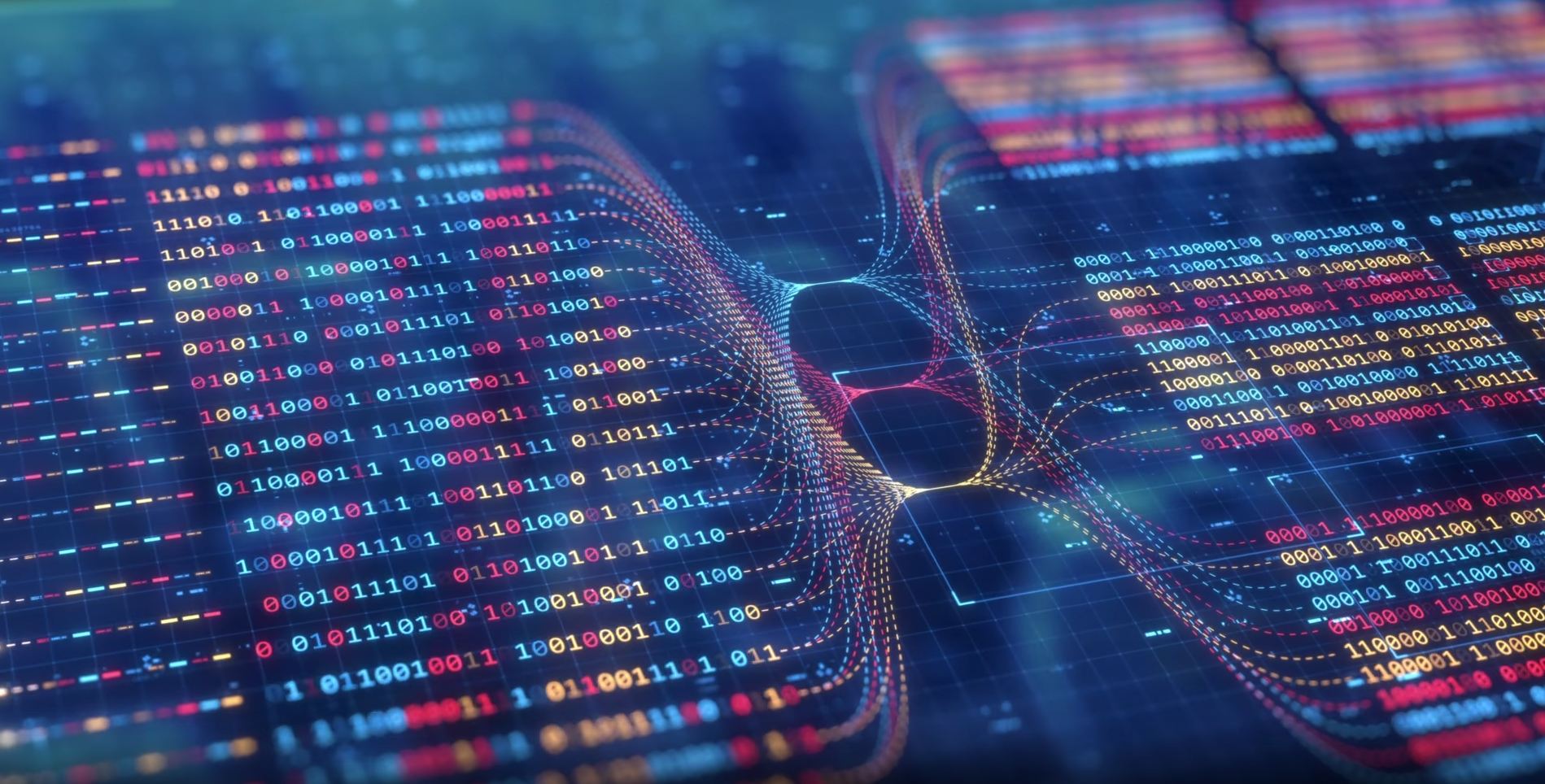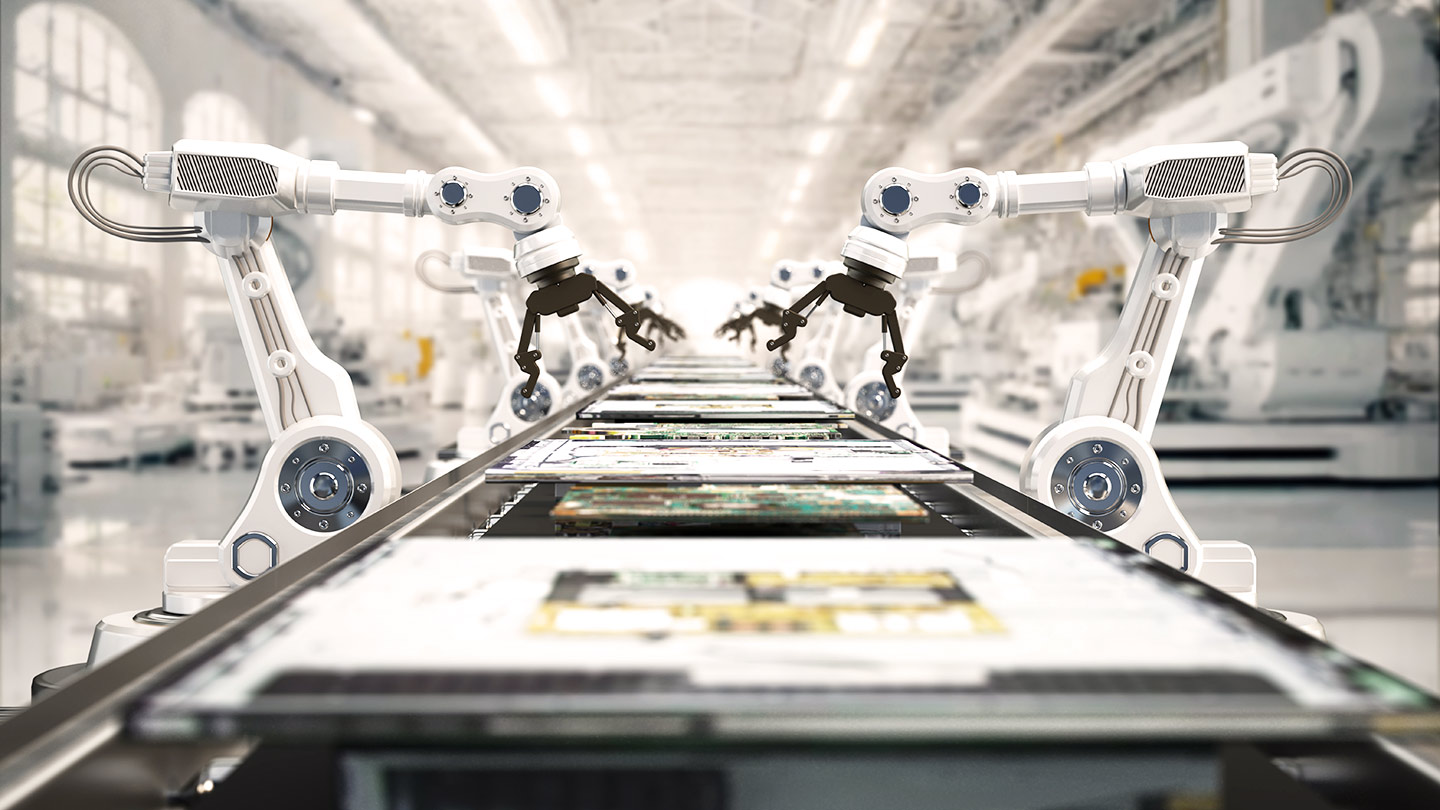For Companies and Institutions
-
Commercial Banking
We provide credit, financing, treasury and payment solutions to help your business succeed. We also offer best-in-class commercial real estate services for investors and developers.
-
Global Corporate Banking
We help clients achieve their long-term strategic goals through financing, liquidity, payments, risk management and investment banking solutions.
-
Investment Banking
Providing investment banking solutions, including M&A, capital raising and risk management, for a broad range of corporations, institutions and governments.
-
Institutional Investing
We support the entire investment cycle with market-leading research, asset management, analytics, execution, and investor services.
-
Payments
Your partner for commerce, receivables, cross-currency, working capital, blockchain, liquidity and more.
Key Links
For Individuals
-
Wealth Management
With J.P. Morgan Wealth Management, you can invest on your own or work with an advisor to design a personalized investment strategy. We have opportunities for every investor.
-
Private Bank
A uniquely elevated private banking experience shaped around you.
Explore a variety of insights.
Key Links
Insights by Topic
Explore a variety of insights organized by different topics.
Key Links
Insights by Type
Explore a variety of insights organized by different types of content and media.
Key Links
We aim to be the most respected financial services firm in the world, serving corporations and individuals in more than 100 countries.
Key Links
- Insights
- Treasury
- Trade & Working Capital
- The Future of Global Trade

The world in 2030- opportunities in trade-1080
Now, over the course of this day, we've talked so much about the issues of the day, the issues that are top of mind for so many executives, and those I think that will also stretch out over the next few years. But what will trade look like over the course of the next decade? What will trade look like in 2030?
So to peer into the crystal ball with me, I'd like to invite on stage three experts. So please join me in welcoming Stuart Roberts, Managing Director, Global Head of Trade at JP Morgan Chase. We have Wael El Zanaty, Director for Public Policy and-- oh, apologies. One seat over, please, Stuart, if that's fine.
So we have Wael El Zanaty, Director for Public Policy and Government Relations in MENA General Motors. And we have Ulrik Knudsen, Deputy Secretary General at OECD. Please give them a warm welcome.
[APPLAUSE]
Thank you so much, gentlemen, for joining me here today. I'm excited about this topic. And I think it's a great way to round up today's discussions and really come to a close and look ahead to the future.
I want to start with a big question about what will trade look like. But perhaps let's unpack some of those drivers. What are some of those factors that will influence the shape of tomorrow's trade?
And so, Stuart, I'll come to you first. So can you tell me one factor you think that will influence what trade will look like over the course of the next decade? If you can just name one, and we'll unpack some of the others over the course of this.
Sure. So I think technology, for sure. But given we're only eight years away from 2030, I would also say global monetary policy needs to be really understood.
OK, fantastic. And Wael?
Well, I think the trade policy is very important in two levels. The first one is the trade between nations, and the second one the different country regulations on how the product should look like in my country.
Fantastic. So we'll definitely dive into that as well. Ulrik, what are your thoughts?
Remember, if we had met in January, as we were supposed to, I would have said that the two major factors would have been the green transition and the digital transition. But now it's all down to geopolitics. I think we're at a pivotal moment, not only for geopolitics, but also for trade and international trade. What's going on now in Ukraine could cast a shadow over international trade also for the next decade. It's going to be a geopolitical decade also for trade.
That's right. And I think geopolitics will touch on many different aspects of trade, as we were talking about earlier. So it will be great to get those thoughts in as well. But maybe let's deep dive into technology first. So, Stuart, what's the biggest challenge that you're seeing with accelerating tech adoption in trade at the moment, given the suite of technologies that we're dealing with?
I think your previous guests nailed it. For us, in terms of being a company that is instrumental in financing trade, the technology that we need is all there. Technology adoption-- big banks have adopted technology throughout their own back offices, trading systems, et cetera. The challenge is that there isn't the legal framework that has kept pace with the technology.
I would also add that technology tends to bring a lot more transparency and visibility. Some of it will tie into geopolitics is if the world does decouple between heavily-sanctioned and non-sanctioned kind of hemispheres, however that looks like, a lot of visibility and transparency will grind trade between those two hemispheres to a halt, because clearly, with visibility and transparency through the entire supply chain will come knowledge that some entity somewhere is sanctioned. And so technology will be inhibited by both legal framework and in the geopolitical environment.
But having said that, there are immense opportunities. If you think about e-commerce, and you look at the number of people during COVID that started their own little merchant trading enterprise off e-commerce platforms, small businesses, it's a huge democratization of trade that is unparalleled, I think, in history. So that's very exciting. I think the Fourth Industrial Revolution, the Internet of Things, the ability to manufacture at smaller scale on a much more decentralized basis is exciting and, again, plays into a geopolitical and climate change agenda.
But again, a lot of this will be dependent upon geopolitics. So if you look at e-commerce merchants, small businesses that are now thriving, what we see in terms of our financing of them is 85%, 90% of what they buy comes from China. So if there is a geopolitical shock as it relates to China, that technological democracy will be severely inhibited.
Absolutely. And I think you bring about the complications, but also some of the exciting components about technology. Ulrik, you raised your hand. Please jump in.
No, I just wanted to support what Stuart was saying, that this is a complex geopolitical space, right? We already had a looming Cold War-type situation on the trade and tech front between the US and China before COVID, before the Ukraine crisis. Now we have a full-blown economic war between the West and Russia on trade and tech and every economic aspect of life you can think of. It'll be extremely important to see how those two aspects of Cold War-type interactions will play out-- the one now with Russia, which is full-blown, and then what was looming with China where we had to, at the same time, cooperate on certain issues, be rivals on others, and then compete in the trade arena.
But already before this crisis, there was a trade arena and a tech arena for Cold War-like type behavior between the West, certainly Washington, and Beijing. And now we have this added dimension. And I agree with Stuart that not only trade, but also the nexus between trade and tech is going to be center stage of that. I think that's a pretty safe prediction.
Yeah, you said that really perfectly, that nexus between trade and tech. So that's fantastic. And thank you for sharing your views on that.
Wael, I want to come to you. And I'm getting a bit specific here, mainly because in our research that we've just published today we did interview General Motors. And Wael's colleague told us about how they're rolling out 3D printing across facilities around the world. And for me, that's a game changer that could potentially change sourcing patterns. But you have your views on that, Wael. Why don't you share that with me?
I think it's quite clear that the two economists are talking about the politics and then I'm the public policy guy. I want to talk about the economy. But this is show how the globe is changing.
For General Motors, we are in the middle of all this turmoil. We are changing from a automotive company to a platform innovator, so a company that can produce hardware and software for the future of the mobility. And that means that we are interrupting ourselves. We are the company that first introduced EVs 100 years ago. We are going back to getting EVs to everyone, and also to offer connectivity and safer environment and autonomy to all the market. This is from the technology side.
But back to the-- Stuart pointed at the beginning. Part of the technology that you mentioned is the 3D printing. Now, to think about a car from the time that the designer think about it until it become on the road, it usually takes four years. With the recent technology, we are reducing this to two years. And that's huge time saving and huge impact on the total cost of the innovation in this field. One of the clear example to this is the car that's going to be launched soon, which is the Hummer EV. This car, from the concept till the road, is two years.
So the 3D printing is going to produce a lot of opportunities for company to transfer the tech in almost no time. But it also dependent on the availability of raw material and how can you use your Tier 1 and Tier 2 supplier to get the material that you're going to print in the local sphere. So this is how can we look to the future and how the technology is interrupting the industry.
Let me just add as it relates to the cost base. And this is replicated across a lot of industries. The cost of investment of setting up a 3D printing plant is significantly less than it historically was for a traditional car plant with all the robots, the conveyor belts, the amount of land. And then you had centers of excellence where you then had Tier 1 suppliers would then congregate around that massive plant.
Again, this goes to the ability now to decentralize and ability to localize. That, I think, is going to be one of those big drivers as technology as an enabler, and actually does play into, unfortunately, a fragmentation of our globalization that we've seen over the last 30, 40 years.
Yeah. Wael, you wanted to add to that?
I think that's very important point because usually the first word is the policies. And policies is shaping how the businesses is running. But two points-- that the speed of the innovation is far more than the capacity of anyone to control. So it's on their business and on the government to collaborate. And the concept of public-private partnership is very crucial in this time.
So we make sure that, like the last speaker was saying, that the technology neutrality. Sometimes it's conceptually right, but when it comes to practice, we are like just forcing Apple to put Android on their phones to make it the same software for everyone, which is not fair. So this kind of concept needs to be regarded. And I think we are working with different government to try to spread this concept of collaboration and also to give the technology neutrality a chance.
That's right. And we were talking about this earlier in terms of also certification for ESG. And I think what you said, Stuart, just now about localization also is a good segue into that ESG conversation, because that intersects with sustainability as well and those priorities that are coming into supply chain management. To what extent do you think ESG mandates will now shape the future of trade?
I think if it's done well-- and that's a big question mark on that-- if it's done well, I think it will be one of the most important drivers over the next decade. I'm also concerned that without good governance and good regulation, ESG could become a bit of a moniker that is cast with a whole bunch of cynicism. So I think moving less from the concept of ESG more to governance and strong regulations which, again, as a bank, I get frustrated with, is that the multilateral world-- governments, individual countries-- there's been an absence of standardization and governance around what constitutes ESG. How do you democratize ESG throughout supply chains? And too often it's been left to private organizations to try to figure it out. And so the cynicism around ESG is that it could be seen as just a wealth transfer between big companies and consultants with very little rigor and value. So that is the most important thing that hangs over the ESG industry and the ESG concept right now. Can you get the governance and the regulatory environment right?
And the same goes for sanctions, right? And I'm just going to briefly talk about sanctions because it's a pet peeve right now and we're living it. But a lot of governments have said, listen, we don't really have the financial task forces to be able to look at all of the money laundering proceeds, terrorist funding, all of that. And they've outsourced it again to banks and private corporations to say, you guys need to go figure it out. And if you don't figure it out, we're going to fine you. But we're getting to the point now where the world has gotten so complex that both ESG and compliance sanctions needs to now have a firm regulatory body where there is the equivalent of Interpol that can do that proper oversight and stop trying to outsource it to private corporations.
Yeah, absolutely. Ulrik, do you have any thoughts on this as well in terms of how ESG is playing a role in the future of trade?
While I think it's a fair point Stuart is making that more responsibility should be taken by international organizations, including my own, the OECD, we also have to be realistic and say, what have international organizations achieved over the last 25, 30 years in terms of international regulation. Certainly at the WTO, when we've seen contentious issues such as trade and environment-- now trade and climate, trade and labor, and so on-- it is very, very difficult to come to agreement among almost 200 countries.
I think, actually, that we, as OECD, have a role to play here because we've had some success in providing principles and norms starting in a smaller group of circles, a smaller circle of countries, be that our own members at the OECD, but sometimes also G20 talking about tech. We did that with AI principles, tried to democratize that. We did last year the big international tax agreement that now spans, I think, more than 140 countries.
We are now planning to do something similar when it comes to carbon pricing, another contentious issue internationally. Could we provide some principles, or at least some dialogue, so that when countries go about carbon border adjustment mechanisms, that at least we see eye-to-eye on what is the fair balance between what some would perceive as protectionist measures and others as climate protection measures?
I think we have a space there at the OECD for providing perhaps soft rules, soft norms, realizing how difficult it is to get agreement. I know why Stuart would want that. But maybe our approach at the moment, the plurilateral approach, the soft law approach, is more realistic.
I mean, nature abhors a vacuum. And so we have a vacuum right now around ESG compliance. And so there are a lot of different actors who are filling that gap. Some of them are credible. Some of them perhaps not so credible. And so private organizations like GM, JP Morgan, are having to decipher all of that in the absence of a vacuum that's being created by government on regulatory bodies.
I think there's another aspect to this conversation on ESG metrics and validation regulation and so on-- and we were talking about this earlier, Wael-- which was about people being left out. So there's small and medium-sized companies. But maybe not. Just companies who are implementing some of these sustainability measures but are not able to get certified. The cost of certification is prohibitive. What are your thoughts on that? Are you seeing that, Wael?
Yes. I think the problem is that the different big economical blocs is looking to the sustainability from a different aspect. So for example, you need to be ISO certified. And ISO not one certificate. It's like 1,725 certificates.
And this kind of different grading is not seen the same in China or in the US. So, in that case, you can have a very environmentally-friendly product that produce in a good manner but it is not ISO certified to certain-- and instead of ISO, it's not certified with some stamps, so it is not having the chance to be sold in most of the market. And to get this stamp, you need to redo a lot of back work. And that is adding cost and reducing the speed of production. And all this at the end of the day will be paid by the end user.
The opportunity now of the trade-- it's not only that I produce currently in North America and I sell it in Dubai. There is a lot of think tanks that's in this part of the world that produce new technologies that can be a part of the bigger machine that's coming after in the chain process. So I think the trading will need to be about two ways. And it's not only one way of selling to end consumer, but also the market can provide the mothership with a lot of technologies that changing the future and expediting the process.
OK. Wael, I want to move on to trade governance as well. And I want to ask you, Wael, have tariff barriers largely been dealt with now in terms of regional agreements? And will the focus now shift onto non-tariff barriers? Is that where we're going to focus on next?
It's happening. And unfortunately, you find within a trading bloc that two countries, they have a free trade agreement. And then after sometimes, back to my earlier point, the trade is coming in one way. So the other country will say, no, I will impose 20%, 25% non-tariff barriers on this commodity, just to protect my economy. But the backlog of this, that the product in this country will be more expensive than the other countries. And consequently the consumer can take it from outside due to the e-commerce.
Or the other problem that's happening is that the different countries are now allowing legally for the barrel trade. So if you are imposing a 25% non-tariff [INAUDIBLE] on a product that's coming from certain destination, the customer can get it from the other market and bring it in as a barrel trade or we call it some dealer or something. And this entity will be getting the product to the consumer with a 25% less price. Consequently, the local distributor of this country and all this operation will be losing. So the decision of this country is jeopardizing the business of the local businesses. So it needs to be locked in a lot of bigger umbrella to make sure that the sustainability of the business is there and, consequently, the local business will run.
And either you are an idealist or other way around. Getting the others to be in a good shape is not a choice. It's a mandate. Because at the end of the day, you have a product. You need to sell it to someone who can afford it. And if the other side doesn't afford it, then the product will not be sold.
Right. And I think, too, earlier just about closing the loopholes in the system as well. Ulrik, from that perspective, in terms of trade governance as well, with more trade agreements, will that strengthen the mandate of the WTO in terms of trade governance, in terms of addressing trade disputes that may arise?
Well, I think it's the decade-old question of whether regional trade agreements are building blocks or stumbling blocks. And I think from a WTO perspective, or from the perspective of supporting the multilateral trading system, we would always favor a truly multilateral agreement to a regional one. But if you have negotiations stalled at the multilateral level or at the WTO, as we've seen, at least in terms of comprehensive, deep trade liberalization for almost three decades now-- if that is the alternative scenario, then regional trade agreements are definitely a good thing. Tariffs, non-tariff barriers alike. Let's liberalize trade through that regional means. And it could also be a building block towards some sort of multilateral breakthroughs.
But the truth of the matter is that we have not concluded any multilateral trade round since the GATT round in 1994, which formed the WTO. So it's almost three decades of no multilateral rounds. I'm not saying that there's not been progress. We've had quite a number of plurilateral successes, including on services, domestic regulation, just back in December. But to tie, perhaps, the knot with what we discussed earlier, we also need one on digital trade or on e-commerce. So, no, I think regional trade agreements are good. But the sooner or the more we can multilateralize them, the better.
OK, thank you. I do want to remind the audience that we are welcoming questions from the audience. So if you do have a question, please do go up to the microphone. And I'll keep an eye on that for anyone who does have a question to our fantastic panelists. But till then, I want to--
Can I add maybe just-- because--
Of course.
Remember this morning, in your opening remarks, you cited your own survey which showed, perhaps to my positive surprise, that companies were actually increasingly diversifying rather than going regional. I have to admit that in the first few months of COVID-19, back in the spring of 2020, I was a little bit nervous when both companies and countries started talking about going from offshoring to nearshoring, going from just in time to just in case, because that could feed into this narrative of going local, going protectionist maybe, in the worst-case scenarios.
Your survey suggests that this is not happening, or at least there is a more ambiguous picture. And I think that is positive. There can be reasons-- and Stuart, you mentioned some of them-- for going local and for diversifying, and for also looking at the supply chain to make it shorter. There can be very good reasons for that.
But we have to keep markets open at the same time. And we cannot abandon the idea of a open market. So yeah, let's go local, but for the right reasons, not for protectionist reasons.
You did. I mean, Ulrik, you've already set the scene from my next question to Stuart.
Which I disagree with, right?
[LAUGHTER]
But please share your thoughts, Stuart. Of course, as Ulrik said, our research shows that right now companies are still diversifying their supply base regardless of location. We were very clear with that statement there. But with regional trade agreements now coming into force, will you see that shift? You're saying you're seeing signs. Tell me more.
No, I mean, I think that can be broadly true in a lot of industries. But going back to Ulrik's point around the new Cold War, around things like technology-- and I would absolutely say that energy and energy production has always been a geopolitical discussion. But if you look at technology, the question is not so much are they diversifying their suppliers. The more is are they diversifying away from China.
So this is where it ties into monetary policy, geopolitics, technology. It all starts to come together. And if you use the tech industry as an example, China came into the WTO 2000, 2001, right? And one of the reasons why, 16 years later, you have Brexit, you have Trump, is, during that period of time, there was a huge manufacturing knowledge transfer from the Western countries, the OECD countries, into China. And no industry benefited more from that than technology.
And we, as consumers, benefited massively from that, which also ties into another aspect, which is inflation, right? So we've had, in that same time period, I would argue, an almost reckless monetary policy by the large six central banks that has printed an inordinate amount of money even before COVID arrived. And that has led to huge asset price inflation, which has caused huge amounts of inequality around the world. But more so, what kept core inflation in check was two things-- China as a manufacturing hub, and number two is the rise of our fracking technology that allowed the US to become the number one producer of oil and natural gas.
So going back to China and technology transfer, technology companies started moving out of China before COVID because of wage rates. So in China now, the wage rates are not dissimilar. They're basically the same as they are in Mexico.
Right.
And so you factor in that combination of both transport costs, diversification. And then you start seeing Mexico as an increased benefit of geopolitical and also wage price increases in China. So that's leading to a shift. And every technology company I speak to-- particularly the ones in hardware, where you have that long supply chains-- they're all talking about Mexico. They're talking about Vietnam as another diversification place, and then Eastern Europe. Eastern Europe is becoming an increasingly large technology hub for manufacturing.
And so it's not so much diversity of supply, because it could be Foxconn in Mexico, it could be Foxconn in Eastern Europe. It's diversification from China and that overreliance both on increasing inflation in China, but then also the geopolitical concerns.
And I think that takes time to feed through because when Intel announces it's going to build a semiconductor plant in Ohio, that takes five, six years to come online, right? Similarly, with Samsung and their announcement in Arizona, those things take time to come on. And then finally you start seeing the production numbers come out. But in geopolitically-sensitive industries, I think nearshoring, friend-shoring, ally-shoring is going to become increasingly important.
Fantastic. Thanks for your thoughts on that. I don't see anybody at the microphone, so I'll turn to a question from our audience at home. There's a question on what is the place of digital currency in international trade. Does anyone has a preference? Stuart?
Yeah, I mean, I think, again, the rise of digital currencies is technology. But it's also-- again, one thing I try to educate all of the people on our team and our bankers is don't underestimate the power of monetary policy. So if central banks are printing money, then people start to lose faith in the fiduciary value of the currency. It's not surprising that they will turn to gold. They'll turn to silver, as they've historically done.
But now you have these new things, where I see Bitcoin becoming more of a stored value kind of asset class than necessarily an efficient means of transferring money. You can fly around the world, go to your ATM, you can swipe your card. It's pretty efficient. I don't really want to set up a bunch of servers and mine Bitcoin for three days before I go get on a plane. So I think that's a direct relation to both technology and also monetary policy.
I think what will be more interesting will be things like a digital yuan. You saw the announcement yesterday. Aramco said that it's entertaining selling oil to China on a renminbi basis and moving away from dollars for their oil. That's probably more interesting than, say, a pure blockchain-based electric currency.
OK, thank you. Ulrik, I want to ask you about areas of international cooperation. Where do you think now international cooperation really needs to focus to enable tomorrow's trade? So what do you think?
Well, we touched upon it briefly, that, in many ways, the rules that we trade by now multilaterally were made in the last century. And we have tried to update those rules to take account of climate considerations and e-commerce and digital. I think it was in 2017, so five years ago, the e-commerce negotiations started in the WTO, in a small grouping. There are now a few more countries are trying to negotiate some progress. But we haven't really updated our trade rules to take them into the 2020s.
And I think, especially in the digital area or e-commerce, which has shown such promise during COVID, right? We've learned what digital trade and what the digital transformation can do for us. We need an update there.
We've talked a little bit about the '90s today. But imagine if COVID-19 had struck the world in, let's say, 1994, when we did the last multilateral trading round. We did not, in '94, have meaningful internet for consumers, certainly. We did not have anything called teleworking. We did not have telemedicine, let alone Netflix or whatever.
We would basically have had to face choices and dilemmas so much starker than the ones we had to face over the last two years. I know it's been a severe crisis economically, humanitarian, and for societies and so on. But imagine if COVID-19 had struck in 1994. We would basically have had to choose between saving not millions, perhaps billions of lives or saving the economy. We could not have done both, which we have managed, more or less, to do now.
I'm saying all this to go back to the point that we may criticize the digital transformation. And there are so many big questions out there we need to tackle-- cyber security, digital currency, privacy, data protection, and all of those issues. But we also need to remember that the digital transformation has, in many ways, saved us the last couple of years. The trade rules need to also take account of that to facilitate digital trade.
And building out what Stuart said earlier also, about the benefits from globalization that perhaps were not distributed evenly when we had the last big crisis-- after the financial crisis in 2008 and '90, we just turned on the engine of globalization. Maybe that uneven distribution of the undisputed benefits from globalization led to Brexit, gilets jaunes, the Yellow Vests in Paris, maybe Trump, maybe polarization-- that you certainly cannot rule that out.
My point is now that as we exit this crisis, the COVID-19 pandemic-- we are not there yet, but we will exit it. And as we do that, we need again to turn on globalization. We need to turn on the big engine of this decade, which is the digital transformation.
But we cannot repeat the mistakes of the last one. So we need to make sure that we do not create new digital gaps in terms of skills, in terms of access, in terms of connectivity. That has to be affordable and at a certain quality for everyone around the world. If not, then switching on that digital engine for the world economy could lead to new polarization. So I think that's a tremendously important lesson that we must have learned over the last decade.
Absolutely. I think creating that inclusive environment is so important as we move ahead. Wael, I wanted to ask you the same question anyway, given your focus on policy. Please go ahead. Let me know.
Well, I think if we reflect this on our corporation life, five years ago, General Motors go and buy a company called Cruise. That was a small company that thinking about autonomous driving. Until that is, riding in a car that doesn't have a driver or a steering wheel was just a science fiction. Five years after, just last week, the US allowed the vehicles from Cruise to drive in the streets of San Francisco without a driver. And this is now is a science fact.
So the amount of disruption that a mobility as an industry is showing over the last five years is more than the previous 50. And that is a good reflection about how the globalization, because it's not only what Cruise did in San Francisco. It's the global network of innovation idea behind General Motors and behind Cruise that led to the development of the technology.
And back to the earlier point about the role of the regulations, thanks to the UAE and Dubai, Dubai is going to be the second city in the world before Detroit-- that's the first product that's coming from General Motors to be launched in Dubai before Detroit, which is the autonomous vehicle. It will be here by the end of the year and on a commercial basis in one year from today. And this is how we move the challenge and globalization into reality.
Just to connect all the dots, this is all about the enabling policies. So without the support of the enabling policies that allowed to say that we don't have the product feature that we are looking for now, but at least give us a different level of confidence, the same level of confidence that the new technology will offer us. And then we'll bring the technology first in the chain. So that is a huge advantage of the policy, how it can be turned from, no, you cannot move to a technology-enabling lever.
Can I just-- one point to all this, because this is all great. And I don't worry about UAE. I don't worry about Dubai. But there was huge inflationary pressures in the global economy before COVID. Obviously, trillions and trillions of dollars have been printed. There's even more inflationary pressures, and now you've had another massive economic shock in terms of Russia-Ukraine. There will be polarization in terms of access to technology.
Imagine you're Bangladesh. You're Sri Lanka. You're even Turkey. You're an energy importer. You're a food importer. Grain prices this year have already doubled since December. They'll probably quadruple by the end of the year. You have food insecurity.
We know that the precursor to the Arab Spring was food price rises, right? There is going to be political instability. So again, there will be these haves and have-nots in terms of really benefiting and adopting this kind of technology. Other people are going to be very worried about just getting enough food and enough energy to provide subsistence.
So there's a lot that we need to do in terms of both our business, and I would argue in terms of a global regulatory framework as well, that we need to be a little more nuanced in terms of where is stuff going to happen, where is it not. And I would just say rising interest rates in the US is going to lead to foreign direct investment leaving the emerging markets. So it's going to compound that problem.
And so we also-- and this ties to ESG-- we have to get a little more nuanced around carbon. Is it OK for a Senegal to produce oil so it has an ability to earn export revenue? Yes. Maybe the oil carbon initiative should be much more punitive in the developed world than they are in the emerging markets.
Sri Lanka is facing a debt default. Sri Lanka runs on coal. Coal should be allowed to go to Sri Lanka. We need to be more nuanced in terms of both our carbon policies, but also in terms of understanding priorities for individual countries.
You've opened up a whole other topic, and I'm sure we could talk about that for much longer. But we are running out of time. And I think I want to touch on that big question, that vision for future of trade. So it'd be great to get-- I mean, I can't close this session without that kind of a question. So it would be great to get that from each of you. So Ulrik, if you can start off with that.
The future of trade?
Vision for the future of trade. What would you like it to look like?
I'd hate to leave us sort of in a miserable state, but it is tempting to say that we have the 33 best years of our lives behind us--
[LAUGHTER]
--with hope, prosperity, and stability now being turned into fear, poverty-- for some, at least the most vulnerable-- and certainly uncertainty. I don't think it's ever been more uncertain than now. In five minutes, we are, the OCD, going to publish a report today saying just the war we've seen over the last couple of years, we estimate that will take 1% of world growth or economic growth this year, just what we've seen over the last couple of years. So we're living in tremendously uncertain times. I'd love to be optimistic here at the end, but I find it right now a little bit hard to find out what exactly to base that optimism on.
Wael, will I get a more optimistic answer from you?
Yeah. Yeah, we believe, in General Motors, in a future with zero crashes, zero emissions, and zero congestion. And we are turning this belief into reality with the technology. And I think what we really need is two things-- a policy that will allow for the technology to evolve and grow in the right manner. And also, as an industry and as a big corporation as well, we have a duty to collaborate with the government to make sure that no one is left behind.
Great. Thank you, Wael. And Stuart?
I think on one side it's easy to be pessimistic. I think globalization as we've known it under kind of a Pax Americana with kind of liberal multilateral agencies, I think that is dying, or at least in intensive care.
Was that your optimism, Stuart?
[LAUGHTER]
That was the pessimistic. But, at the same time, a multi-polar world is not necessarily bad, right? This is going to be a good decade for India. Those countries that are neutral-- UAE, Saudi-- that sit in those crossroads and can balance the geopolitical kind of neutrality and be able to straddle the sanctioned and unsanctioned world, they will do fine.
I think it's going to be challenging for China. They have huge debt issues. They have food insecurity, although they've done a very good job of prebuying an awful lot of food ahead of this particular crisis. Maybe they got a heads-up from Vladimir.
And then you've got places like Latin America. But if they have good governance, should be able to benefit enormously from it. I worry about Western Europe. I don't think Western Europe is positioned at all well for the next decade.
So a matter of perspective.
Yeah, exactly.
Matter of where you're located. Thank you so much for all of those fantastic insights. Again, I'm sure we could have continued this conversation. But we do have to bring this day to a close. But please join me in thanking our panelists for their wonderful insights.
Thank you.
[APPLAUSE]
[MUSIC PLAYING]
Globalization will define trade
There are many factors that will influence trade over the next decade, which include technology, global monetary policy, ESG and geopolitics. In this panel discussion you’ll hear from Stuart Roberts, the Head of Trade and Working Capital at J.P. Morgan discuss these factors and more.
- Geopolitics has become a key driver in leading change in Global trade. While geopolitics has always influenced energy and its production, the technology industry is progressively joining the landscape as companies increasingly become neutral entities.
- Technology plays an instrumental role in financing trade, as well as some of the inhibitors from a legal framework and geopolitical environment.
- There is a growing focus on the impact global monetary policy has on organizations like J.P. Morgan and similar large banks.
- Prioritizing ESG efforts will be one of the critical drivers over the next few decades as long as proper governance and leadership are in place.
Connect with your J.P. Morgan representative to get started today.

Stuart Roberts, Global Head of Trade and Working Capital, J.P. Morgan
Stuart is an accomplished senior leader with 10+ years of experience in trade and working capital, relationship management, and managing credit exposure.
Stuart joined J.P. Morgan from Citigroup, where he served as its Global Head of Sales for Citi’s trade business.
All rights reserved. The statements herein are confidential and proprietary and not intended to be legally binding. Not all products and services are available in all geographical areas. Visit jpmorgan.com/disclosures/payments for further disclosures and disclaimers related to this content.
Related insights

Treasury
9 practical steps for setting up a regional treasury center
Feb 02, 2026
Establishing a regional treasury center (RTC) is a strategic imperative for multinational businesses. The process is complex, but manageable. Get started with our guide.

Treasury
A strategic planning framework for Corporate Treasury to remain pragmatic as well as forward-looking, to capture key drivers of innovation and growth in the years to come

Treasury
Connect ERP and treasury systems for automated workflows
Jan 29, 2026
Eliminate manual data entry and payment delays by integrating your ERP with treasury systems. Get real-time cash visibility and automated workflows that reduce errors.

Treasury
Understanding the cash application process
Jan 12, 2026
Optimizing your cash application process can help fuel your company’s success. Find out how.

Treasury
Enhance your corporate treasury's risk management with FX exposure netting solutions
Nov 24, 2025
Discover how virtual netting can provide a scalable framework for currency risk management, optimizing treasury operations and driving financial performance in a complex global landscape.

Treasury
The check is dead, long live the check
Nov 13, 2025
Wholesale lockbox may not mean much to the average consumer, but to businesses across the US, this method of check and payment processing is a critical part of driving business efficiencies and profitability.

Treasury
Your cash conversion cycle—what it is and how to optimize it
Oct 14, 2025
Discover how the cash conversion cycle impacts business efficiency and learn strategies to optimize cash flow management.

Treasury
Being resilient relies on connected treasury tools
Oct 10, 2025
In the face of a variety of obstacles, businesses are looking to improve their resiliency. Having a trusted treasury partner can help.
You're now leaving J.P. Morgan
J.P. Morgan’s website and/or mobile terms, privacy and security policies don’t apply to the site or app you're about to visit. Please review its terms, privacy and security policies to see how they apply to you. J.P. Morgan isn’t responsible for (and doesn’t provide) any products, services or content at this third-party site or app, except for products and services that explicitly carry the J.P. Morgan name.